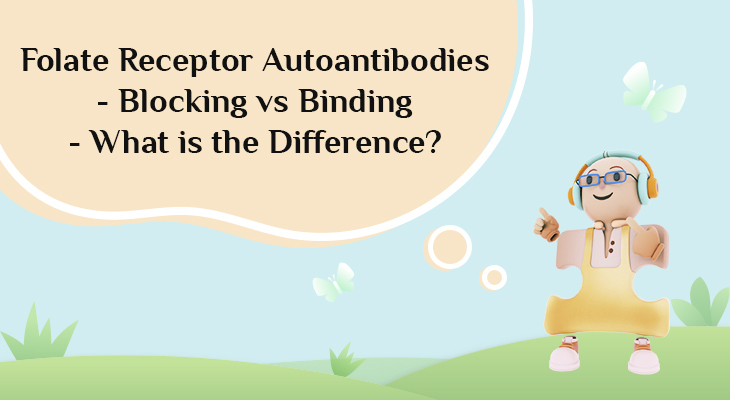
Introduction
Folate receptor autoantibodies (FRAAs) are a recent discovery that have shown to have significant implications in autism.
Folate receptor autoantibodies (FRAAs) are antibodies that target the folate receptors in the body, specifically those involved in transporting folate (vitamin B9) across cell membranes, including into the brain. Folate is essential for many bodily functions, particularly in DNA synthesis and repair, cell division, and neural development.
Folate is vital for brain development and function. It helps regulate the production of neurotransmitters and is involved in the methylation cycle, which affects gene expression. Folate deficiency during critical periods of brain development has been linked to neurodevelopmental issues.
Folate receptor autoantibodies have been implicated in certain cases of autism spectrum disorder (ASD), suggesting a potential immune-mediated mechanism affecting brain development. The theory is that when these autoantibodies bind to the folate receptors, they block or impair the transport of folate into the brain, leading to a condition known as cerebral folate deficiency (CFD). This deficiency could result in impaired brain function and development, which might contribute to symptoms associated with autism.
Key Findings on FRAAs in Autism:
- Higher prevalence in children with autism: Research has shown that a subset of children with autism have detectable FRAAs. Studies estimate that up to 50-75% of children with ASD have these autoantibodies.
- Connection to cerebral folate deficiency: Children with autism who have FRAAs often exhibit symptoms of CFD, which can include developmental delays, seizures, hypotonia (low muscle tone), and speech and language difficulties.
- Treatment with folinic acid: Some studies have found that treatment with folinic acid, a form of folate that bypasses the blocked receptors, can improve symptoms in children with autism who test positive for FRAAs. Improvements have been reported in areas such as communication, social interaction, and behavior.
Interestingly, there are primarily two types of folate receptor autoantibodies (FRAAs) that can affect the function of folate receptors and disrupt folate transport into cells. The two types of folate receptor autoantibodies are:
- Folate Receptor Blocking Autoantibodies (FR-blocking antibodies):
- Function: These antibodies block the binding of folate to its receptor by attaching to the folate receptor and preventing folate from being transported into cells. This can result in a deficiency of intracellular folate despite adequate levels in the bloodstream.
- Impact: FR-blocking antibodies are thought to be more directly involved in neurological conditions like cerebral folate deficiency syndrome. Because folate is crucial for brain development, particularly in early childhood, the presence of these antibodies can have significant effects on neurological and cognitive function.
- Folate Receptor Binding Autoantibodies (FR-binding antibodies):
- Function: These antibodies bind to the folate receptor without necessarily blocking the folate from attaching to the receptor. However, their presence might lead to immune system responses or disrupt the normal function of the folate receptor in more indirect ways.
- Impact: Although they do not directly block folate transport like the FR-blocking antibodies, their presence is still associated with disrupted folate metabolism and immune-mediated effects, potentially leading to similar neurodevelopmental and cognitive issues.
Possible Roles in Disease:
- Autism Spectrum Disorder (ASD): Both types of autoantibodies have been found at higher rates in children with ASD compared to typically developing children, leading to research into the potential role of these antibodies in ASD-related neurodevelopmental challenges.
- Cerebral Folate Deficiency (CFD): A significant association exists between these antibodies and cerebral folate deficiency, which is characterized by low levels of folate in the cerebrospinal fluid, resulting in developmental delays, motor dysfunction, and sometimes seizures.
Ultimately, these autoantibodies can impair folate’s role in critical processes like DNA synthesis, repair, and methylation, which are essential for proper cell function and development.



